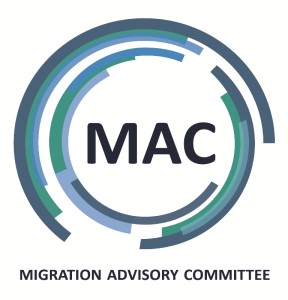Letter from the Home Secretary to Professor Brian Bell, 6 August 2024 (accessible)
Updated 15 August 2024
Home Secretary
2 Marsham Street
London
SW1P 4DF
Professor Brian Bell
Migration Advisory Committee
2nd Floor Peel Building
2 Marsham Street
London
SW1P 4DF
6 August 2024
Dear Professor Bell,
I would like to recognise and thank you for the vital role the MAC has played in providing sound, evidence-based advice to successive governments since it was established in 2007.
The government is committed to bringing down the high levels of migration. We recognise and remain very grateful for the contribution that people from all over the world make to our economy and our public services but the system needs to be managed and controlled. The current high levels of international recruitment reflect weaknesses in the labour market including persistent skills shortages in the UK.
The current approach is not sustainable and the system as it exists is not operating in the national interest. This government will deliver a fair, coherent, more joined up approach to the labour market by linking immigration with skills policy.
As part of this, the Migration Advisory Committee, the newly formed Skills England, with their responsibility for identifying skills gaps across the labour market, and the Industrial Strategy Council, together with input from DWP, will work closely to develop a more structured and evidence-based approach to the labour market. These bodies will:
- Collate and compare the data and evidence they hold; and meet on a quarterly basis to use this data to diagnose which sectors are facing significant labour shortages and the reasons why.
- Report to Ministers which will work in tandem with industry and sector bodies as appropriate to take forward plans to address labour and skills shortages in key sectors.
To inform this work, I am writing to ask the MAC look at key occupations to understand the reasons behind their reliance on international recruitment. Based on a preliminary look at indicators to inform assessments of reliance on international recruitment, as well as occupational groups which are the largest users of work visas, we have identified the following occupational groups for this review:
- Information Technology and Telecommunications Professionals
- Engineering Professionals
These sectors feature in the top 10 of those sectors which have been reliant on international recruitment and the government would like the MAC to set out the reasons behind this and potential future demand on these sectors. We envisage this being the first of such reviews by the MAC as we seek to further understand the reliance on international workers in key sectors. The MAC should consider (but not be limited by) the following potential areas including:
- What types of roles are in shortage?
- What are the different drivers of these shortages including training, pay and conditions?
- How have the sectors sought to respond and adapt to these shortages, beyond seeking to recruit from overseas?
- Where relevant, what, if any, impact has being on the shortage occupation list had on these sectors/occupations?
- What policy levers within the immigration system could be used more effectively to incentivise sectors to focus on recruiting from the domestic workforce? This could include whether the Immigration Salary List should remain in its current form.
It is open to the MAC to consider a wide range of different options, including the merits or otherwise of a differentiated approach, based on region, occupation and/or other factors. These must be balanced against the risks of undercutting the wages of British workers and of over-complicating the system. As above, the MAC should work closely with Skills England and the Industrial Strategy Council with input from DWP on developing the evidence base. The MAC should also work closely with the Devolved Administrations.
I would be grateful if the MAC could report on these questions by 9 months from now. This timescale is intended to allow time for sufficient stakeholder engagement to inform any conclusions.
With my very best wishes.
Yours sincerely,
Rt Hon Yvette Cooper MP, Home Secretary

